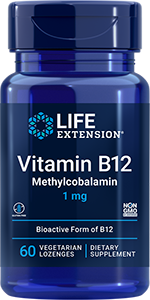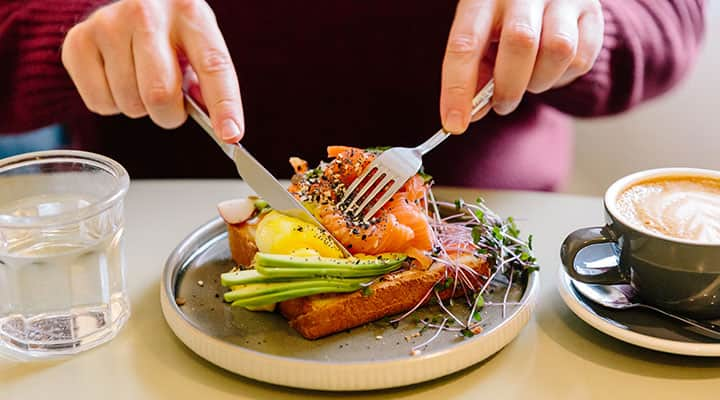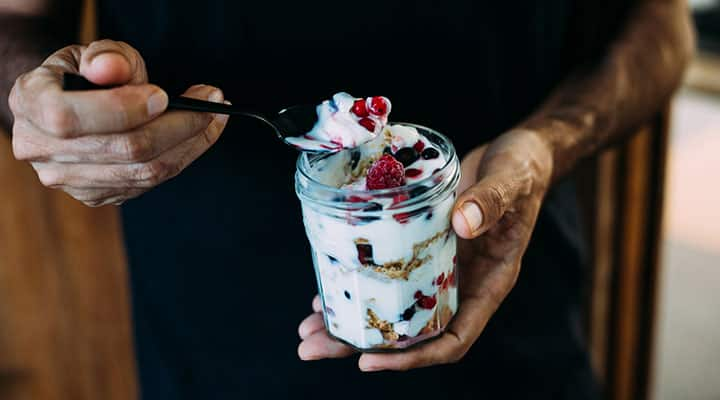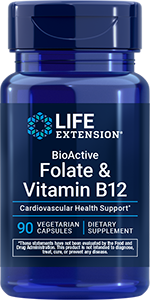
12 Foods High in Vitamin B12
Published: October 2024
You eat plenty of fruits and vegetables, so you may think you are meeting your vitamin B needs—but, there's a good chance you're falling short of what you need for optimal health, especially when you consider that there are multiple B vitamins (eight, to be exact)!
While veggie lovers and salad aficionados may be getting a good amount of folate (it's abundant in broccoli and leafy green vegetables), energy-supporting vitamin B12 is easier to overlook, especially for plant-based eaters and vegans.
Vitamin B12, also known as cobalamin, is a water-soluble B vitamin that is naturally present in some foods, added to others, and available as a dietary supplement. It is required for many important bodily functions, including healthy blood cell formation, maintaining a healthy nervous system and—its best-known attribute—converting the food we eat into useable energy.
Here's how to structure your plate so you get enough of this buzzworthy B!
What are the top foods to increase vitamin B12 in your body?
If you are looking to meet your vitamin B12 needs through food alone, look primarily to animal foods. While animal products are the best sources of vitamin B12, it's their microbiomes that are to thank! This is because B12 is only synthesized by certain bacteria and microorganisms.
Because of this, certain fermented plant foods, mushrooms and algae may contain vitamin B12, albeit very little and likely not enough to meet your daily needs. As a result, vegetarians, and to a greater extent vegans, are most likely not getting enough vitamin B12 from diet alone. Therefore, B12 supplementation is generally recommended.
That being said, here are the best food sources of vitamin B12, according to the USDA food database:
1. Beef liver and other organ meats
While not a staple in most American diets, you can look to beef liver and other organ meats to meet your vitamin B12 needs, and then some. In fact, just 3 ounces of cooked beef liver meets 3000% of the daily recommended allowance of vitamin B12 (set at 2.4 micrograms per day for healthy adults).
2. Clams
Shellfish lovers can rejoice in meeting over 700% of their daily value of vitamin B12 with just 3 ounces of cooked clams. Enjoy clams with your next at-home pasta night!
3. Oysters
If you love slurping down oysters, you'll reap the benefit of nearly 15 mcg of vitamin B12 in just one 3-ounce serving.
4. Salmon
While mostly touted for its omega-3 fatty acid content, salmon is also an excellent source of several B vitamins, including vitamin B12. It contains 108% of your daily value in one cooked 3-ounce serving.
5. Tuna
Canned tuna is a great pantry staple to keep on hand for adding quick high-quality protein to savory meals and snacks. One 3-ounce serving of light tuna canned in water meets 100% of your daily value for vitamin B12.
6. Red meat
If you consume red meat, limiting consumption to one to two times per week may be beneficial for overall health, including heart health. It shouldn't be consumed in excess because it is high in saturated fat, but red meat is an excellent source of vitamin B12. One 3-ounce serving meets 100% of your daily value.
Explore Our Best Nerve Health & Comfort Support Supplements
7. Poultry
Poultry foods such as chicken breast are lean sources of complete protein that provide vitamin B12. Healthy preparations include grilling, braising, pressure cooking and sous vide.
8. Milk
In addition to being a good source of protein and calcium, cow's milk and other dairy products contain vitamin B12. In fact, one glass of cow's milk provides 13 essential nutrients.
9. Yogurt
Among the dairy products that provide vitamin B12 is yogurt. For a nutritious option, opt for plain yogurt and sweeten it with fresh fruit instead of buying a sugar-added flavored kind.
10. Eggs
Eggs, particularly the yolks, also provide vitamin B12. One large egg provides half a microgram of B12, or 19% of your daily value.
11. Fortified cereals
For vegetarians looking for reliable vitamin B12 food sources, look to fortified foods, including fortified cereals. Plant foods are not a source of vitamin B12 unless they are fortified, which is important to keep in mind when following a vegan diet.
When choosing a nutritious fortified breakfast cereal to start your day with, look for one low in added sugar and well-stocked with fiber.
12. Fortified nutritional yeast
To add cheesy flavor to meals and snacks, without the dairy, turn to nutritional yeast, another reliable fortified food source. Fortified nutritional yeast is one of the few available plant-based food sources of vitamin B12, so it's something to keep stocked in your panty when following a vegan diet.
B12 Food Facts
Now that you know what foods can help boost your intake of vitamin B12, let's look at other options.
What nuts are high in vitamin B12?
As a plant food, nuts do not have a significant amount of vitamin B12. The only plant foods that are decent sources are those fortified with vitamin B12.
What fruit has the most vitamin B12?
As another plant food, fruit does not have significant amounts of vitamin B12. To get vitamin B12 from non-animal sources, consider eating fermented foods such as tempeh, some mushrooms such as shitake, as well as seaweed and algae like nori. However, it is important to note they contain only a small amount of vitamin B12, if any.
Why should you take vitamin B12 supplements?
Like all B vitamins, B12 is not made by the body, so it needs to be obtained through diet or supplementation. Vitamin B12 supplements are especially important for those who avoid or limit their intake of animal products.
Additionally, vitamin B12 supplementation can be important for older adults because absorption becomes less efficient with age and the use of certain medications can decrease absorption.
Life Extension's Vitamin B12 Methylcobalamin supplements are vegetarian lozenges that can be conveniently dissolved in your mouth or chewed and swallowed to help ensure optimal B12 levels. Methylcobalamin supplementation supports healthy energy, brain health and cognition, nerve health and red blood cell production. It also helps maintain healthy homocysteine levels, which contribute to cardiovascular, neurological and overall health.
Are there ways to help with B12 absorption?
Some things block your body's ability to absorb vitamin B12: Gastric acid inhibitors can interfere with vitamin B12 absorption from food by slowing the release of hydrochloric acid in the stomach, which is the first step in the B12 absorption process.
Also, it may be a good idea to take B12 with other B vitamins, especially folic acid, as they may work better together.
Before starting any supplement, have a discussion with your healthcare provider to determine your needs and set yourself up for supplementation success.
Interested in more nutrient recommendations to support nerve health? Take our health needs quiz for suggestions personalized to your lifestyle.
References
- Fernandes S, et al. "Exploring Vitamin B12 Supplementation in the Vegan Population: A Scoping Review of the Evidence." Nutrients. May 2024. https://www.ncbi.nlm.nih.gov/pmc/articles/PMC11124153/
- Higdon J, et al. "Vitamin B12." Data on file.
- Watanabe F, et al. "Vitamin B12-Containing Plant Food Sources for Vegetarians." Nutrients. May 2014. https://www.ncbi.nlm.nih.gov/pmc/articles/PMC4042564/
- "Vitamin B12." Harvard T.H. Chan School of Public Health. March 2023. https://nutritionsource.hsph.harvard.edu/vitamin-b12/
Always be in the know!
Access the latest deals, wellness news, expert health tips & more!










